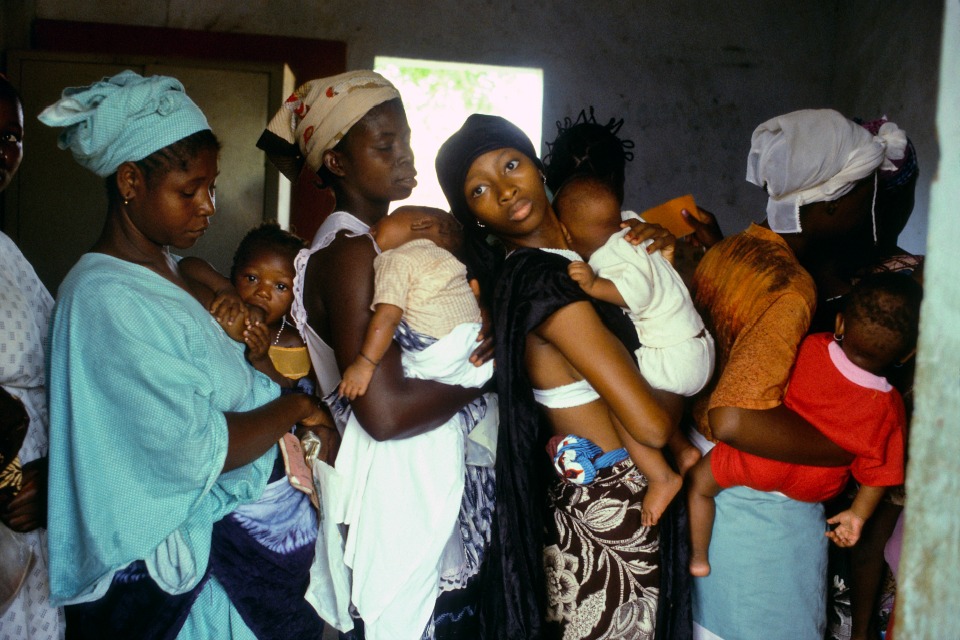"If we are to help the most vulnerable and marginalised women and girls, we simply cannot afford to curb our ambition"
Statement by Ambassador Matthew Rycroft of the UK Mission to the UN, at the UNFPA Executive Board.

Thank you very much Mr President, Mr Executive Director. Thank you for your statement and address today.
Like the previous speakers, the Ministers from Guinea and Uganda, I want to begin by thanking you for all of your work and your achievements. I welcome your annual report and the good progress it shows in all UNFPA’s strategic priority areas. I look forward to working with UNFPA towards a world where every pregnancy is wanted, every childbirth is safe and every young person’s potential is fulfilled.
Although UNFPA is making good progress, we regret very much that we failed to reach consensus on the Commission on Population and Development draft resolution for the first time in our history.
As the global champion for the Programme of Action, UNFPA must lead our response. First, to guide Member States so that we do not repeat this impasse in the future. And second, to make sure that the implementation of the Programme of Action remains on track.
Fulfilling the programme of action is crucial to achieving a transformative post-2015 development agenda. This year one of UNFPA’s top priorities must be to help Member States identify concrete ways to achieve the SDGs and targets related to population and development. This is particularly the case for sexual and reproductive health and rights and gender equality. Omitting these from the Millennium Development Goals cost the poorest women and girls dearly. And we must not repeat that mistake.
Mr President,
I commend UNFPA’s commitment to Family Planning 2020; it’s now an increasingly important vehicle for providing access to safe and affordable contraceptive services. These services allow women and girls the choice of whether to have children, when, and how many. This is particularly true for the poorest women and girls.
But to reach the Family Planning 2020 goal of enabling 120 million more women and girls to use contraceptives by 2020, we need more reproductive health commodities. Through the Global Programme to Enhance Reproductive Health Commodity Security we could prevent 9.5 million unintended pregnancies. But more funds are needed to meet countries’ demands. We urge the UNFPA to highlight the shortfall in the Global Programme and do its utmost to rally the world to close the gap.
This is only the start. The United Kingdom believes that a full package of health and social interventions is needed to meet women’s and girls’ immediate needs, and change the way society values them over the longer term.
All of these issues are interlinked. The girl who is at risk of being cut or married early is also at risk of dying in pregnancy, contracting HIV or dropping out of school to care for her children. So meaningful progress on Child, Early and Forced Marriage and Female Genital Mutilation requires universal Sexual and Reproductive Health and Rights.
This also includes safe abortion, a subject the International Commission on Population and Development covered with clarity and objectivity. Where abortion is legal it has to be safe; and where unsafe abortion occurs, women must receive the post-abortion care they need.
If we take these steps, and more, the most marginalised will not be left behind. The world now has the greatest number of young people in its history. How we meet their reproductive needs will leave a lasting legacy for generations to come.
Mr President,
As the response to the Ebola outbreak showed, it is during the most difficult crises and emergencies that the most marginalised are at risk. Not just from humanitarian suffering, but also from gender based violence and from deteriorating sexual and reproductive health.
As the coordinator of the Gender Based Violence Area of Responsibility, UNFPA can provide leadership on these issues during emergencies and crises. It is of the utmost importance that UNFPA ensures that gender based violence prevention and response is integrated into the overall humanitarian response, and not restricted to sexual and reproductive health responses or support for women of reproductive age.
Mr President,
The annual report of the Executive Director gives us confidence that UNFPA is on track to achieve the goals of the 2014-2017 Strategic Plan. It shows that the new programme management systems have the potential to provide more and better evidence of impact if used effectively. And this is welcome progress.
As we move towards the mid-term review of the Strategic Plan, and as Member States finalise the post-2015 development agenda, we will want to see how UNFPA adapts its programming and refines its targets and goals to respond to emerging results. This is the best way to set the right level of ambition for the future.
We all know the scale of the challenge ahead; a billion still in poverty, a hundred million still vulnerable to child marriage, FGM and cutting. Two hundred and twenty five million still without access to sexual and reproductive health services. If we are to help the most vulnerable and marginalised women and girls, we simply cannot afford to curb our ambition.
Thank you Mr President.